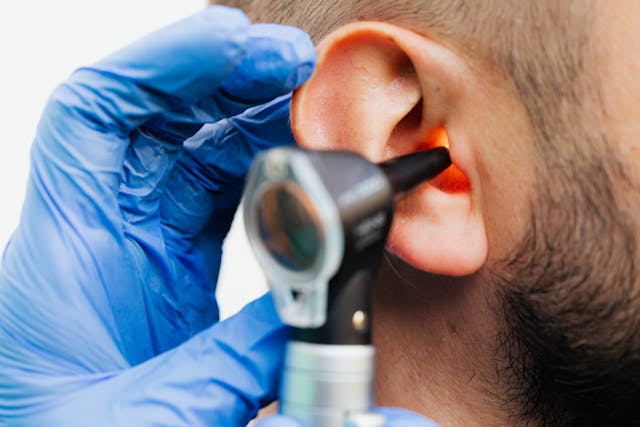Protecting Your Ear, Nose, and Throat Health: Practical Tips for Every Season

Your ear, nose, and throat (ENT) system plays a vital role in daily life—from hearing and breathing to tasting and speaking. Yet these delicate organs are vulnerable to seasonal changes, allergens, infections, and environmental stressors. Whether it’s winter’s dry air or spring’s pollen overload, each season presents its own set of challenges for ENT health.
In this guide, you’ll discover practical, seasonal tips to protect your ENT system year-round, promoting stronger immunity, better breathing, and fewer infections.
🌸 Spring: Guarding Against Allergies and Pollen Overload
Springtime is beautiful—but for many, it’s also the peak of seasonal allergies due to pollen, mold, and blooming flowers.
Common Spring ENT Issues:
- Allergic rhinitis (hay fever)
- Sinus congestion and pressure
- Postnasal drip
- Itchy or watery eyes and throat
Tips to Stay Protected:
✅ Keep windows closed during high pollen days
✅ Use a HEPA air purifier at home
✅ Rinse sinuses with a saline spray or neti pot
✅ Shower and change clothes after spending time outdoors
✅ Talk to an ENT about antihistamines or allergy shots if symptoms persist
🌼 Bonus Tip: Check your local pollen forecast before outdoor activities.
☀️ Summer: Preventing Swimmer’s Ear and Dehydration
Hot weather brings pool time and more travel—but it can also lead to ear infections and dehydration-related sinus issues.
Common Summer ENT Issues:
- Swimmer’s ear (outer ear infection)
- Fungal ear infections from moisture
- Travel-related ear pressure (barotrauma)
- Dry throat from dehydration
Tips to Stay Protected:
✅ Dry ears thoroughly after swimming
✅ Avoid inserting cotton swabs deep into ears
✅ Stay well-hydrated to maintain mucous membrane moisture
✅ Use earplugs when swimming in lakes or public pools
✅ Yawn, swallow, or chew gum during air travel to equalize pressure
🌊 Bonus Tip: Carry saline nasal spray while traveling to prevent sinus dryness.
🍂 Fall: Boosting Immunity Before Cold and Flu Season
As temperatures drop, so does your immune response. Fall is a crucial time to fortify ENT health before the wave of colds, flu, and respiratory infections hits.
Common Fall ENT Issues:
- Viral sore throats and congestion
- Onset of chronic sinus conditions
- Worsening seasonal allergies (ragweed)
- Vocal strain due to dry air
Tips to Stay Protected:
✅ Get the flu shot and consider COVID boosters
✅ Stay active to support circulation and immune health
✅ Avoid sudden temperature shifts (bundle up when needed)
✅ Drink warm fluids like tea to soothe the throat
✅ Use a humidifier if indoor air becomes too dry
🍁 Bonus Tip: Start using a nasal rinse regularly to flush out allergens and mucus buildup.
❄️ Winter: Combatting Dry Air and Frequent Infections
Cold weather, dry indoor heat, and viruses make winter the toughest season for ENT health. The lack of humidity can dry out mucous membranes, making them prone to infection.
Common Winter ENT Issues:
- Dry throat, nosebleeds
- Laryngitis (voice loss)
- Increased risk of ear and sinus infections
- Worsening symptoms of chronic ENT conditions
Tips to Stay Protected:
✅ Run a cool-mist humidifier in your home
✅ Stay hydrated with water, herbal teas, and broths
✅ Avoid whispering or shouting to protect vocal cords
✅ Cover your nose and mouth with a scarf in cold wind
✅ Practice good hygiene—wash hands, avoid sharing utensils
❄️ Bonus Tip: Gargle with warm salt water to relieve sore throats and reduce germs.
🌟 All-Year ENT Wellness Habits
Regardless of the season, these consistent habits can help you maintain optimal ear, nose, and throat health:
Daily ENT Care Tips:
- Don’t smoke, and avoid secondhand smoke
- Limit alcohol and caffeine, which dry out the throat
- Use proper vocal technique if you’re a singer or speaker
- Address allergies early before they develop into chronic issues
- Clean earbuds and hearing devices regularly
- Get regular checkups if you experience recurrent issues
🧼 Bonus Tip: Keep your living space clean and free of dust mites, mold, and pet dander.
🩺 When to See an ENT Specialist
Seek professional help if you experience:
- Chronic sinus infections or nasal congestion
- Frequent ear infections or hearing loss
- Voice hoarseness lasting more than two weeks
- Difficulty swallowing or persistent sore throat
- Nosebleeds that are frequent or hard to stop
- Ringing in the ears or balance issues
👨⚕️ ENT specialists (otolaryngologists) can diagnose and treat a wide range of conditions—many of which are easily manageable if caught early.
FAQs About Seasonal ENT Health
1. Can allergies cause ear problems?
Yes. Allergies can cause fluid buildup and pressure in the ears, leading to discomfort or temporary hearing issues.
2. How do I know if my sore throat is viral or bacterial?
Viral sore throats often come with cough and congestion. Bacterial (like strep) usually involves a sudden sore throat with fever and no cough. Always consult a doctor for a proper diagnosis.
3. Should I use a humidifier year-round?
It’s especially helpful in winter or in dry climates, but overuse without cleaning can promote mold—clean it regularly.
4. Can sinus issues be prevented?
Yes. Regular nasal rinses, allergy management, and staying hydrated can help prevent sinus inflammation and infection.
5. Is it okay to clean ears with cotton swabs?
No. Cotton swabs can push wax deeper or damage the ear canal. Use drops or consult a doctor if wax buildup is a concern.
6. How can I protect my voice in dry weather?
Hydrate, avoid throat clearing, and warm up your voice before speaking or singing extensively.
7. Are nosebleeds in winter serious?
Not usually. Dry air is a common cause, but frequent or heavy nosebleeds should be evaluated by an ENT.
8. Can ENT issues affect sleep?
Absolutely. Conditions like snoring, nasal congestion, and sleep apnea often stem from ENT problems and can be treated effectively.
✅ Conclusion
Your ENT system is constantly exposed to the elements, but with the right preventive care, you can protect your ears, nose, and throat in every season. By adapting your self-care routine to the weather, staying hydrated, maintaining clean air, and seeking medical care when needed, you’ll breathe easier, hear clearly, and live healthier.
Make ENT health a priority—not just when you’re sick, but year-round.

